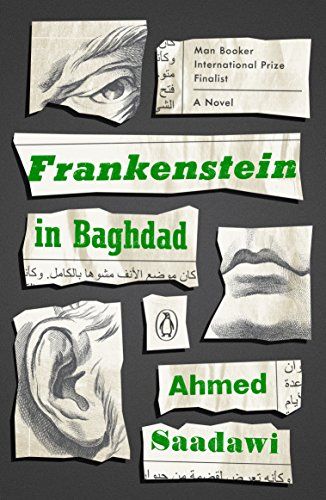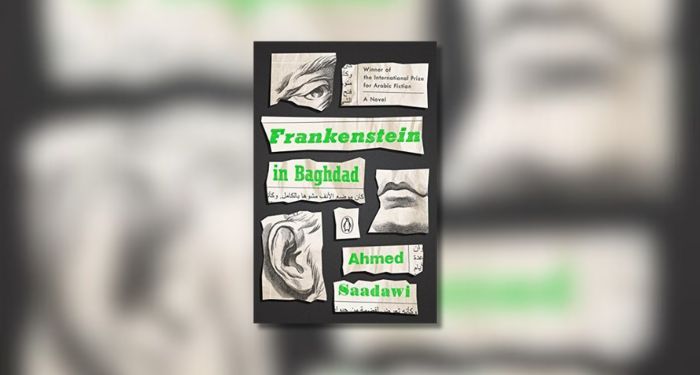

Frankenstein in Baghdad by Ahmed Saadawi, translated by Jonathan Wright
The story unfolds in U.S.-occupied Baghdad, Iraq. Bombs rock the streets, houses are left abandoned, the younger generation flees war to live in places like Australia, including the children of an elderly woman who cannot bear to leave her crumbling but austere home because the framed image of a saint has assured her that, in repayment for her faith, her youngest will come home from war. Meanwhile, Hadi, a man who relies on the bottle to get by, is creating a monster from the ruined victims of neighborhood bombings in his shack full of oddities and items rescued from fallen people and places. And a young journalist steadily climbing the ladder gets a little too involved in his boss’s life through a wild story delivered by an unreliable narrator and the workings of an esoteric branch of government.
At the center of these narratives is the monster—Hadi’s creation who roams the street with a sense of purpose and a Catch-22 survival complex. This isn’t the baffled Frankenstein’s monster we know, this is an entity made in the image of a broken society and by the ravages of war.
No matter the tone there’s always an edge of brutality in books about war, but the gallows humor threaded through this novel brightened that edge in unexpected ways. The monster’s mentality also surprised me. The morals he creates to hold onto his humanity and the ethical workarounds he comes up with to survive left me with much to think on. How do we hold on to our humanity in the face of crisis and can it contend with our instinct to do whatever it takes to survive?

